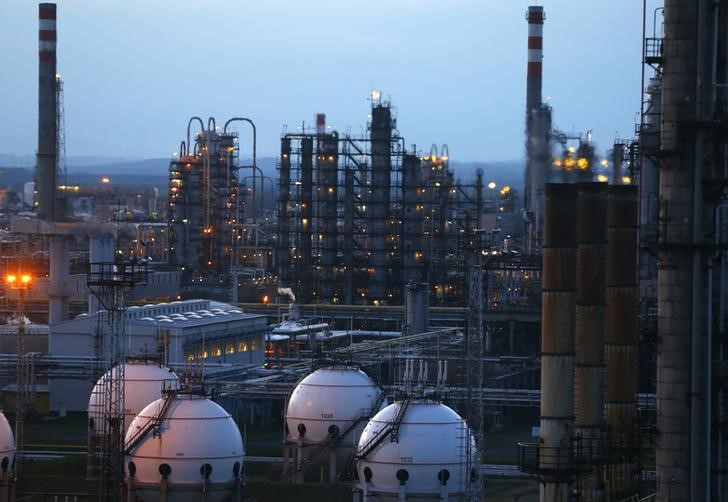Oil prices rise continue to climb on heightened Middle East tensions
Oil prices climbed strongly Monday, extending recent gains on fears on a wider Middle East war.
At 08:20 ET (12:20 GMT), Brent oil futures rose 1.7% to $79.39 a barrel and West Texas Intermediate crude futures climbed 1.9% to $75.78 a barrel.
Both contracts rallied between 8% and 10% last week, as the raised Middle East tensions were boosted by the positive U.S. payrolls data, which lifted hopes that the US economy was more resilient than initially feared.
Still, trading volumes were somewhat limited on account of golden week holidays in China. Chinese markets are set to reopen on Tuesday. Supply disruptions in focus on 1-year anniversary of Israel-Hamas war
Oil bulls built on bets of Middle East supply disruptions as the Israel-Hamas war showed few signs of cooling. Monday marked a year since the Hamas attack on Israel triggered renewed hostilities between the two.
Reports on Monday said Hezbollah rockets had hit Israel’s third-largest city of Haifa.
Israel struck Hezbollah targets in Lebanon and the Gaza Strip on Sunday, days after Iran launched a large-scale missile strike against Israel over its activities against Hezbollah and Hamas.
Reports said Israel was considering attacking Iran’s oil production facilities - a move that could disrupt oil supplies and mark a drastic escalation in the conflict. Demand cues, interest rates remain in focus
Oil markets remained focused on more cues on demand, especially after top importer China announced a slew of stimulus measures over the past few weeks.
Positive U.S. labor market data also helped spur some optimism over demand in the world’s biggest fuel consumer. But the reading sparked sharp gains in the dollar, which in turn weighed on crude prices. Crude oil spike possible - BCA
The risks of a spike in crude oil prices have increased, according to analysts at BCA Research.
While BCA maintains a cyclical outlook that crude prices are likely to weaken over the next six to nine months, the immediate market environment is fraught with uncertainties that could support higher prices in the near term.
Geopolitical tensions, particularly the escalating conflict in the Middle East, are creating supply-side risks that have jolted market participants awake to the possibility of a supply shock.
This potential disruption comes at a time when the region accounts for a substantial portion of global crude output, raising alarms over the possibility of infrastructure being targeted in future retaliatory attacks.
Despite these concerns, BCA Research notes that there is still ample spare capacity within the OPEC+ bloc to offset any temporary supply shocks.
Key OPEC+ producers have been withholding significant production, and they might be willing to step in and increase output to stabilize the market.
The group kept production unchanged during a meeting last week, but also reiterated plans to begin increasing production from December.
(Ambar Warrick contributed to this article.)
Source: Investing.com
